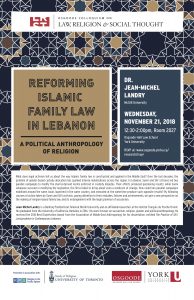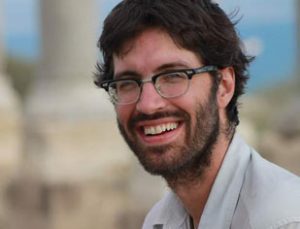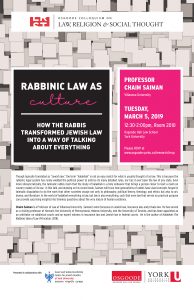 March 5, 2019
March 5, 2019
“Rabbinic Law as Culture: How the Rabbis Transformed Jewish Law into a Way of Talking about Everything”
Prof Chaim Saiman (Villanova University)
12:30pm to 2:00pm, Room 2010 Osgoode Hall Law School
RSVP: www.osgoode.yorku.ca/research/rsvp
Though typically translated as “Jewish law,” the term “halakhah” is not an easy match for what is usually thought of as law. This is because the rabbinic legal system has rarely wielded the political power to enforce its many detailed rules, nor has it ever been the law of any state. Even more idiosyncratically, the talmudic rabbis claim that the study of halakhah is a holy endeavor that brings a person closer to God—a claim no country makes of its law. In this talk, and drawing on his recent book, Saiman will trace how generations of rabbis have used concepts forged in talmudic disputation to do the work that other societies assign not only to philosophy, 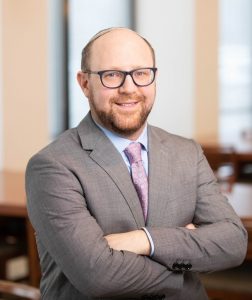 political theory, theology, and ethics but also to art, drama, and literature. In the world of halakhah everything is law, but law is also everything, such that even law that serves no practical purpose can provide surprising insights into timeless questions about the very nature of human existence.
political theory, theology, and ethics but also to art, drama, and literature. In the world of halakhah everything is law, but law is also everything, such that even law that serves no practical purpose can provide surprising insights into timeless questions about the very nature of human existence.
Chaim Saiman is a Professor of Law at Villanova University. Saiman’s work focusses on Jewish law, insurance law, and private law. He has served as a visiting professor at Harvard, the University of Pennsylvania, Hebrew University, and the University of Toronto, and has been appointed as an arbitrator on rabbinical courts and an expert witness in insurance law and Jewish law in federal courts. He is the author of Halakhah: The Rabbinic Idea of Law (Princeton, 2018).
In collaboration with:


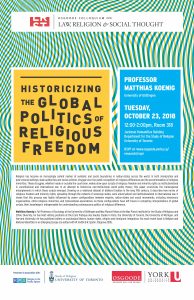

![RPS Master 01 2012-09-20 transparent background[1]](https://lrst.osgoode.yorku.ca/wp-content/uploads/2015/02/RPS-Master-01-2012-09-20-transparent-background1-300x218.jpg)

